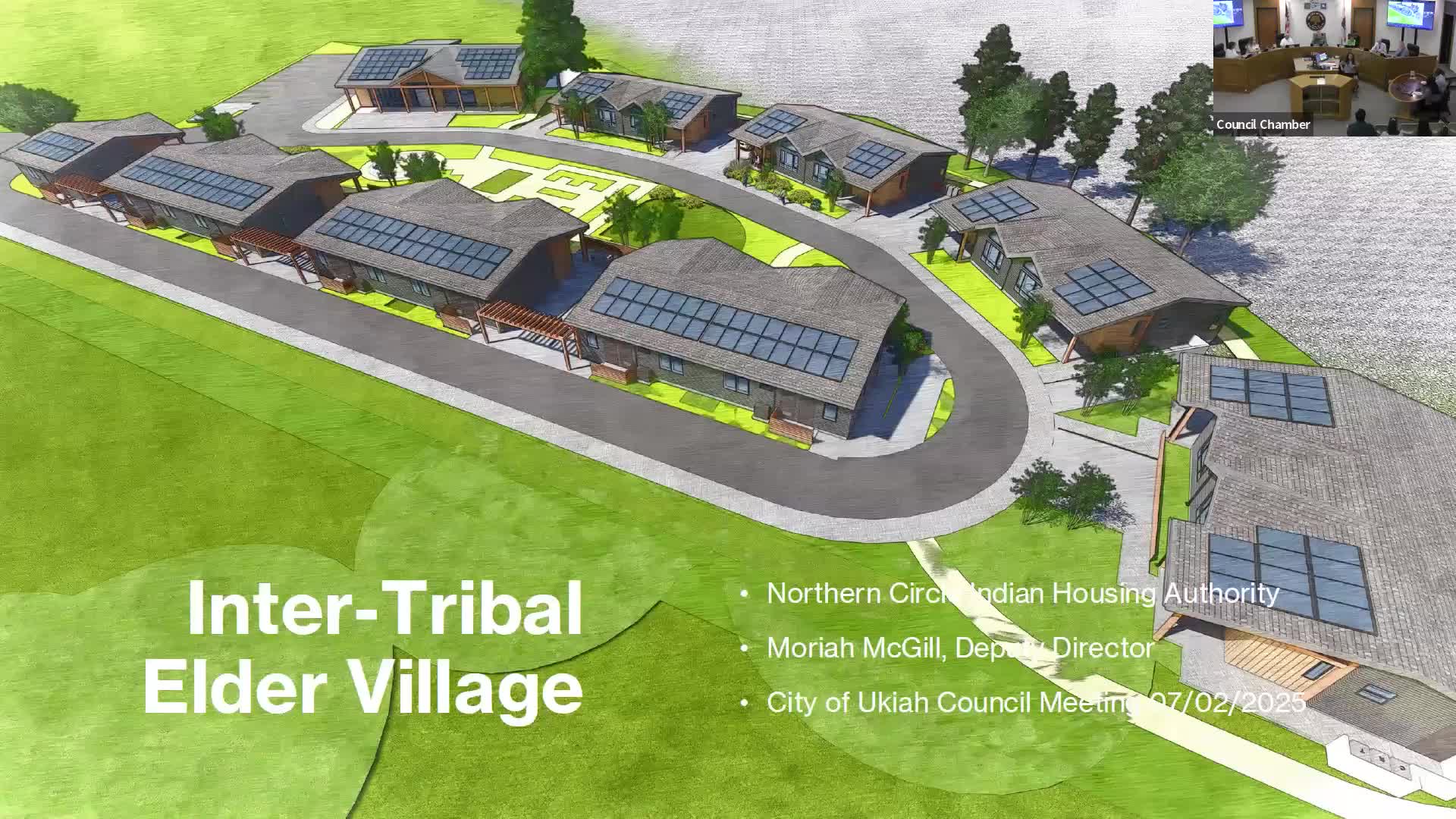Article not found
This article is no longer available. But don't worry—we've gathered other articles that discuss the same topic.
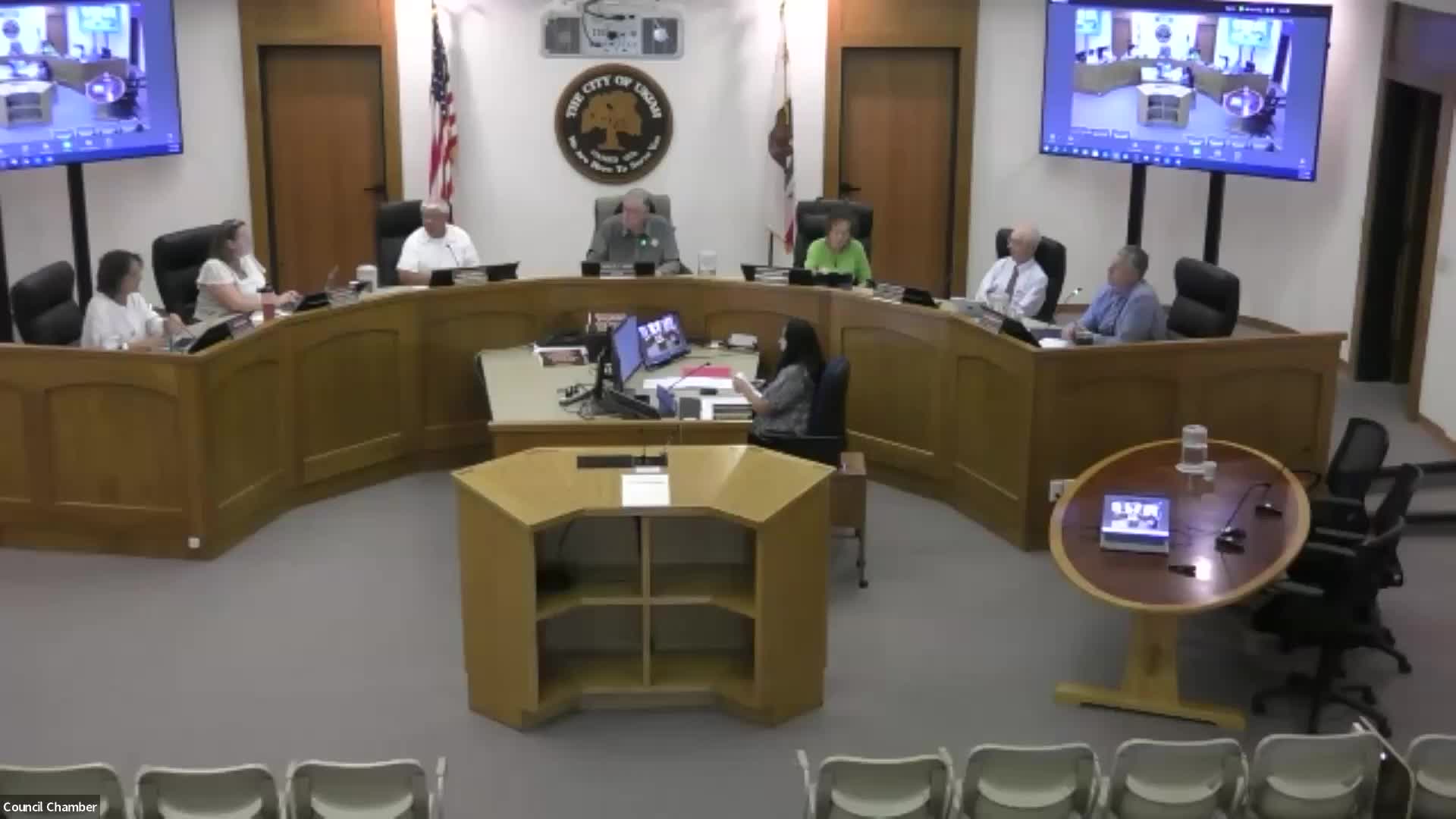
Council discusses change to interfacility transfer dispatch; Cal Fire interim and hospital‑linked contractor to take over
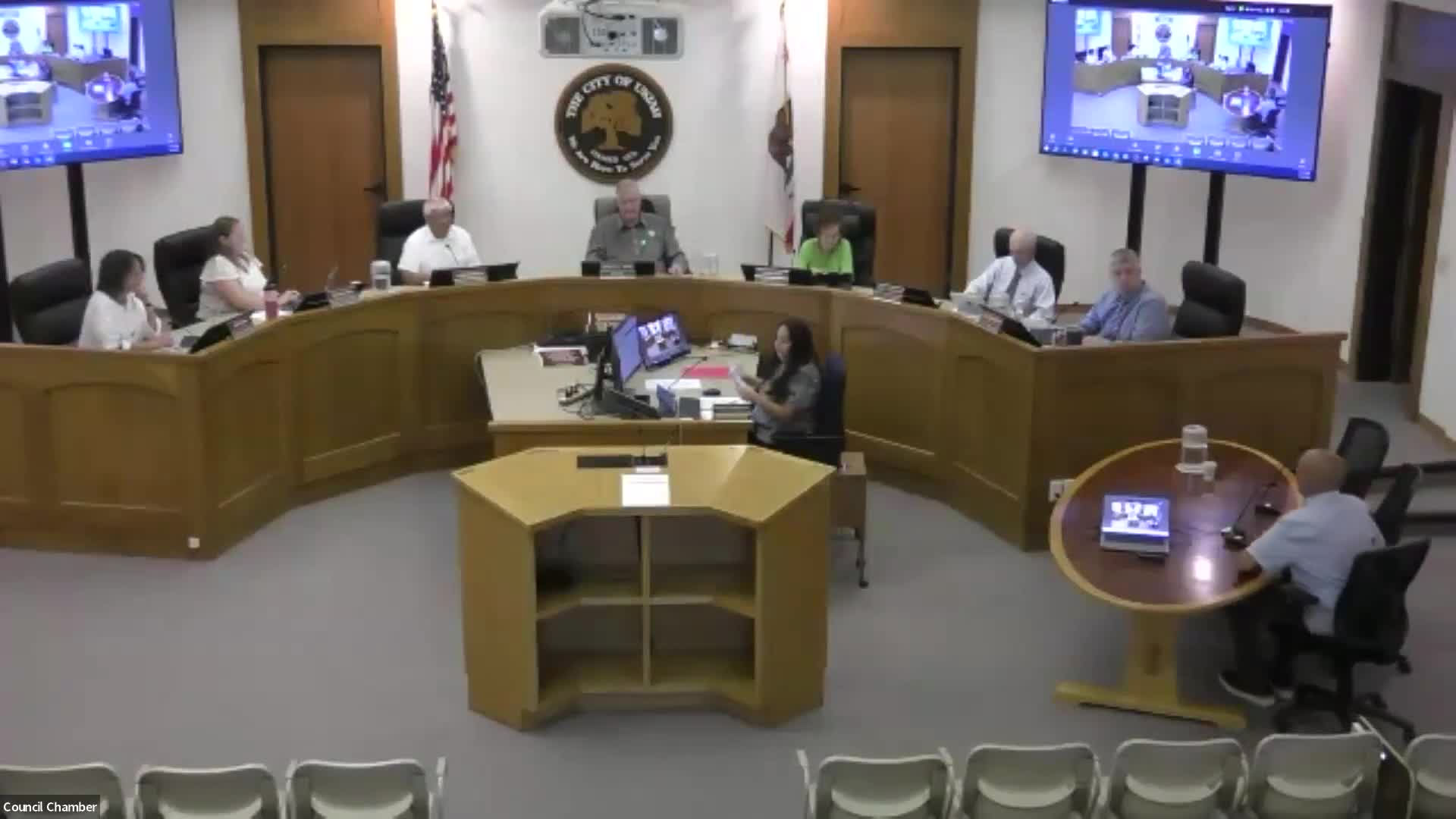
Council authorizes SAFER grant application and approves emergency contract for Western Hills water tank repair
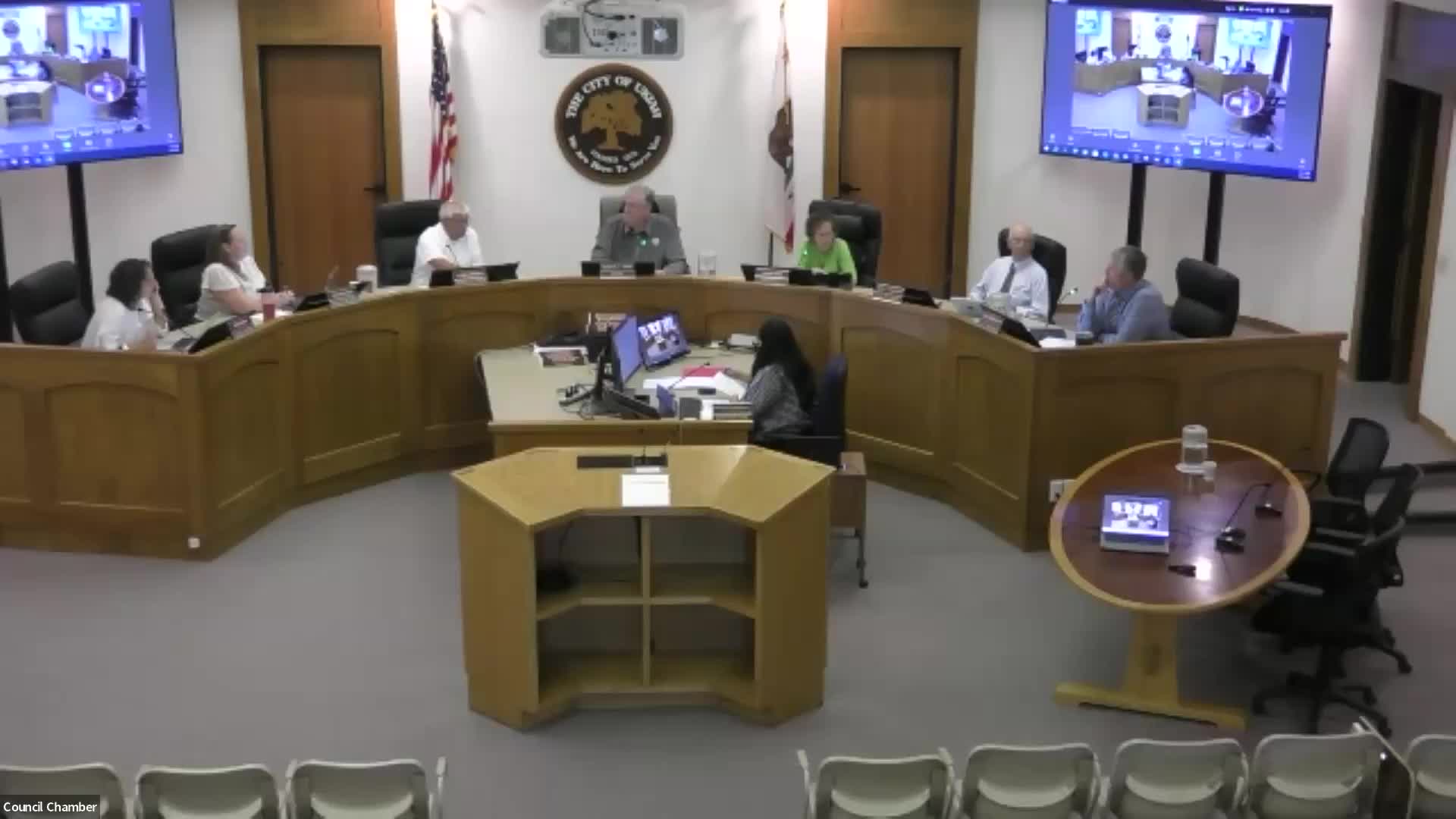
Council hears report on commission vacancies, planning commission quorum and parking standard
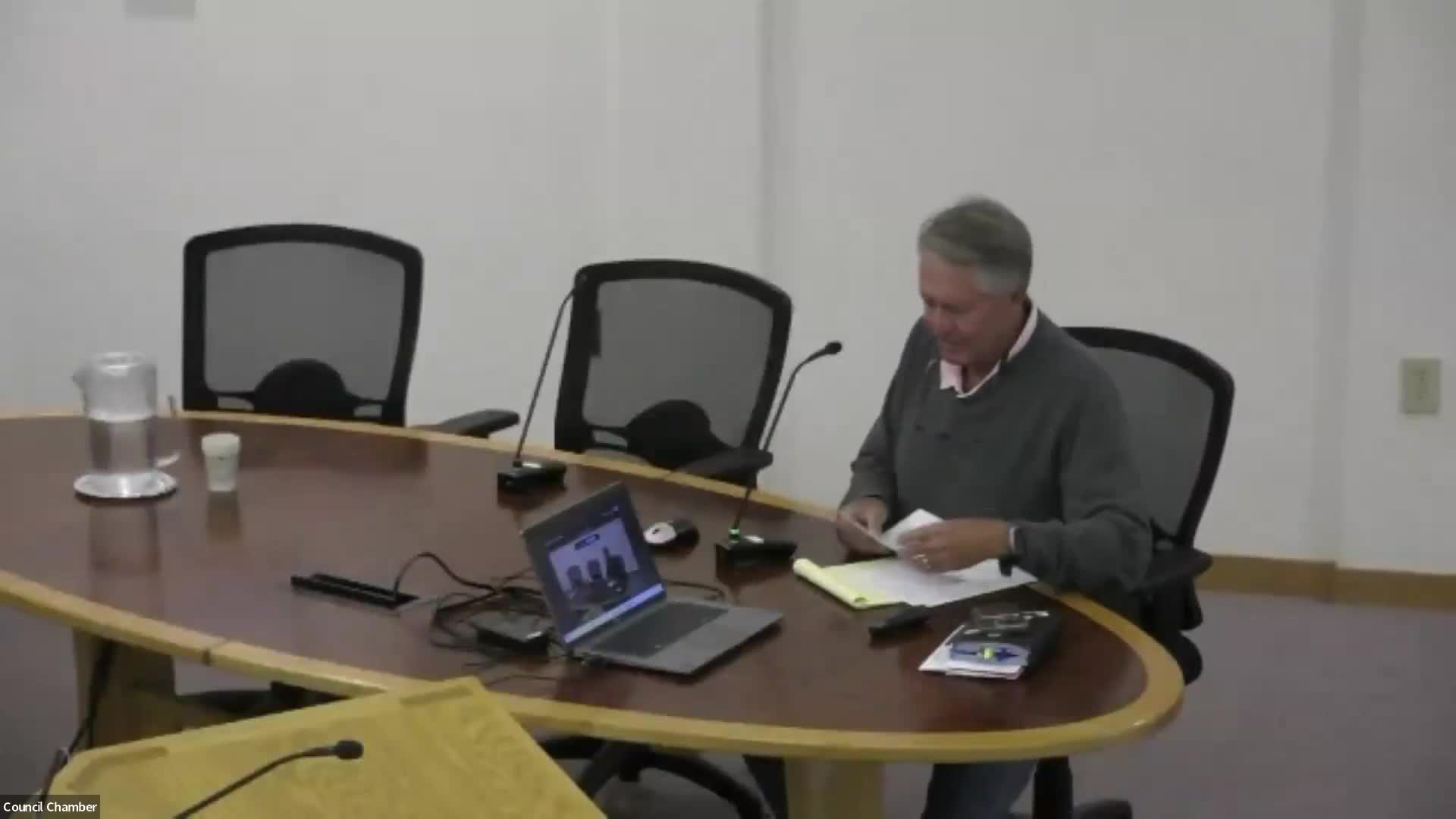
Ukiah reports paving, rail‑trail work, Perkins and Clay/Leslie grants; closes on Carousel 1 corporation yard
